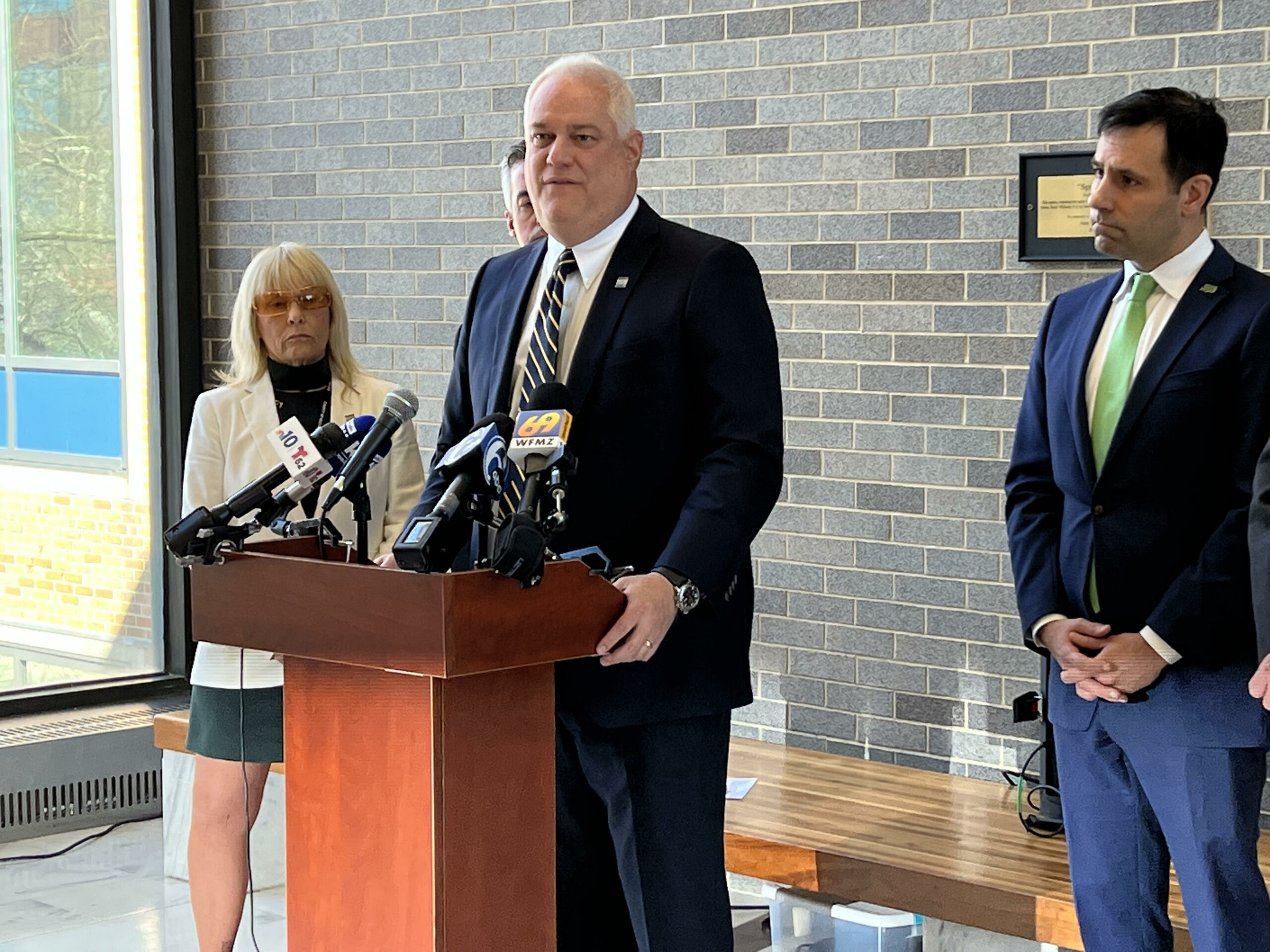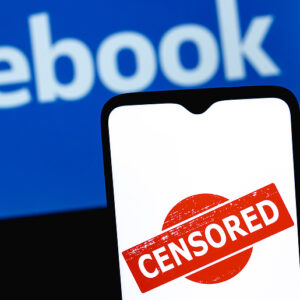Bucks County Sues Social Media Companies Over Harm to Kids

Bucks County officials filed a class action late Tuesday over the harm they claim Facebook, Instagram, Snapchat, TikTok, and YouTube are inflicting on kids. The move makes Bucks the first county government entity in the nation to file that kind of litigation.
“It’s very personal to me,” said Solicitor Joseph Kahn, who noted he is also a parent. “What this lawsuit addresses is a mental health crisis that severely impacts children everywhere, particularly in Bucks County. Like parents everywhere, I have been wondering, what am I going to do about this?”
Kahn was joined by Bucks County District Attorney Matt Weintraub, Commissioners Chair Robert Harvie, and Commissioners Diane Marseglia and Gene DiGirolamo.
The lawsuit, filed in federal court in San Francisco claims, “Youth mental health problems have advanced in lockstep with the growth of social media platforms deliberately designed to attract and addict youth to the platforms by amplifying harmful material, dosing users with dopamine hits, and thereby driving youth engagement and advertising revenue.
“Defendants Facebook, Instagram, Snap, TikTok, and YouTube all design, market, promote, and operate social media platforms for which they have especially cultivated a young audience. They have successfully grown their platforms exponentially over the past decade, from millions to billions of users, particularly children, and teens.”
And those young people have suffered, the lawsuit alleges, raising costs for county taxpayers who pay for their mental health and other services.
“Bucks County residents have borne painful witness to all of this, firsthand, to devastating effect,” the lawsuit says. “For instance, in October 2022, a 15-year-old boy in Bucks County was arrested after threatening to ‘shoot up’ Central Bucks High School West via a Snapchat message. The boy also used TikTok to share videos of other mass shootings.”
Meta, the parent company for Facebook and Instagram, released a statement touting its efforts at promoting responsible social media use.
“We want teens to be safe online,” said Meta’s Global Head of Safety Antigone Davis. “We’ve developed more than 30 tools to support teens and families, including supervision tools that let parents limit the amount of time their teens spend on Instagram, and age verification technology that helps teens have age-appropriate experiences.
“We don’t allow content that promotes suicide, self-harm, or eating disorders, and of the content we remove or take action on, we identify over 99 percent of it before it’s reported to us. We’ll continue to work closely with experts, policymakers, and parents on these important issues.”
Not good enough, Bucks County officials say, pointing to data from the Centers for Disease Control and Prevention showing a surge in depression and suicidal thoughts among American teens between 2011 and 2021. That coincided with the explosion of social media use by teens.
“A Pew Research Study found that almost half of U.S. teenagers aged 13 to 17 say they are online ‘almost constantly,'” the lawsuit reads.
The county is asking for monetary damages and an injunction against the social media companies, officials told DVJournal during Wednesday’s press conference.
The county has a long history of providing mental health services to children and teenagers paid for by taxpayers. The lawsuit asks the court to make the social media companies pay, Kahn explained, adding the companies violate Pennsylvania’s fair trade practices law.
Bucks County isn’t the only government entity to sue social media companies over the alleged harm their products inflict on users. The Seattle public school system is suing several large social media companies. Utah Gov. Spencer Cox has announced plans to sue as well.
Given the extremely deep pockets of social media companies like Facebook and YouTube, what chance does Bucks County have of winning this suit?
Bucks County District Attorney Matt Weintraub said, “I do liken it to a David versus Goliath situation, where we’re David. We’re taking on these enormous companies…They’ve not only taken advantage of our children, but they’ve preyed on our children.”
The mental health agencies have a “literal and figurative line out the door,” said Weintraub. “And it’s filled with our young people. We intend to win. We intend to stake our claim.”
Villanova law Professor and Vice Dean Michael Risch said the David vs. Goliath comparison is overly optimistic.
“David at least had the stone, right? But this David has nothing. The sling is empty,” Risch told DVJournal.
Risch pointed to Section 230 of the Communications Decency Act which protects internet providers from just this sort of liability for the content that third parties post on their sites. A case recently heard by the U.S. Supreme Court claimed that Google is liable for terrorist videos, and the high court appeared unlikely to rule against the search site, he said.
“Here’s something one of your friends posted,” said Risch. “These are not terrorist videos. So, even if Google were to lose in the Supreme Court, it’s unclear whether the behavior of the tech companies is similar to serving up recruitment videos for terrorists because it’s harmful to kids to see other kids primping and doing whatever else they do.”
“This, by the way, is completely accepting these sites are harmful,” he added.
But if the case is allowed to progress, regardless of the final outcome, it could still be problematic for the social media giants.
“I can’t wait to begin discovery,” said Commissioner DiGirolamo. “Where we dig into the emails of the people who work for these companies. They knew what they were doing. ‘Not harmful and not addictive.’ Where have we heard that before? We heard it from the drug companies for many, many years. And (they) pushed these drugs on society.
“I think we’re going to find out these social media platforms knew exactly what they were doing and were preying on our young people. And we’d like to put an end to it, and we’d like to hold them accountable.”
A spokesman for TikTok said he could not comment on litigation but noted the company has various safeguards for underage users including limits on screen time. Snapchat did not respond to a request for comment.
Please follow DVJournal on social media: Twitter@DVJournal or Facebook.com/DelawareValleyJournal




